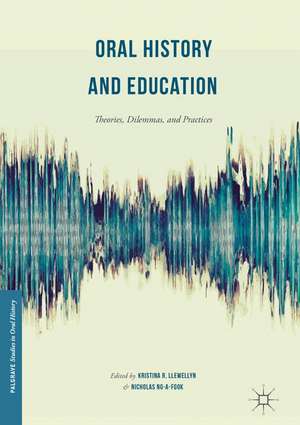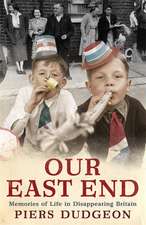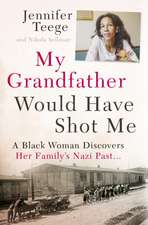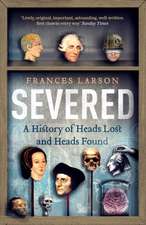Oral History and Education: Theories, Dilemmas, and Practices: Palgrave Studies in Oral History
Editat de Kristina R. Llewellyn, Nicholas Ng-A-Fooken Limba Engleză Hardback – 4 apr 2017
| Toate formatele și edițiile | Preț | Express |
|---|---|---|
| Paperback (1) | 424.43 lei 6-8 săpt. | |
| Palgrave Macmillan US – 21 iun 2018 | 424.43 lei 6-8 săpt. | |
| Hardback (1) | 430.79 lei 6-8 săpt. | |
| Palgrave Macmillan US – 4 apr 2017 | 430.79 lei 6-8 săpt. |
Din seria Palgrave Studies in Oral History
-
 Preț: 252.67 lei
Preț: 252.67 lei -
 Preț: 399.12 lei
Preț: 399.12 lei -
 Preț: 215.11 lei
Preț: 215.11 lei - 18%
 Preț: 732.40 lei
Preț: 732.40 lei - 15%
 Preț: 642.68 lei
Preț: 642.68 lei -
 Preț: 391.61 lei
Preț: 391.61 lei -
 Preț: 383.93 lei
Preț: 383.93 lei - 15%
 Preț: 646.11 lei
Preț: 646.11 lei -
 Preț: 388.72 lei
Preț: 388.72 lei -
 Preț: 391.61 lei
Preț: 391.61 lei -
 Preț: 216.48 lei
Preț: 216.48 lei -
 Preț: 317.52 lei
Preț: 317.52 lei -
 Preț: 389.11 lei
Preț: 389.11 lei -
 Preț: 383.12 lei
Preț: 383.12 lei -
 Preț: 215.33 lei
Preț: 215.33 lei -
 Preț: 213.05 lei
Preț: 213.05 lei -
 Preț: 381.81 lei
Preț: 381.81 lei -
 Preț: 391.61 lei
Preț: 391.61 lei -
 Preț: 199.37 lei
Preț: 199.37 lei -
 Preț: 389.70 lei
Preț: 389.70 lei -
 Preț: 215.54 lei
Preț: 215.54 lei -
 Preț: 390.63 lei
Preț: 390.63 lei -
 Preț: 393.52 lei
Preț: 393.52 lei -
 Preț: 216.30 lei
Preț: 216.30 lei -
 Preț: 384.09 lei
Preț: 384.09 lei -
 Preț: 201.06 lei
Preț: 201.06 lei -
 Preț: 390.63 lei
Preț: 390.63 lei -
 Preț: 389.70 lei
Preț: 389.70 lei -
 Preț: 213.58 lei
Preț: 213.58 lei - 8%
 Preț: 535.97 lei
Preț: 535.97 lei - 15%
 Preț: 645.79 lei
Preț: 645.79 lei - 15%
 Preț: 592.44 lei
Preț: 592.44 lei - 15%
 Preț: 476.75 lei
Preț: 476.75 lei -
 Preț: 386.39 lei
Preț: 386.39 lei -
 Preț: 388.72 lei
Preț: 388.72 lei -
 Preț: 220.93 lei
Preț: 220.93 lei -
 Preț: 388.72 lei
Preț: 388.72 lei
Preț: 430.79 lei
Nou
Puncte Express: 646
Preț estimativ în valută:
82.44€ • 85.58$ • 68.74£
82.44€ • 85.58$ • 68.74£
Carte tipărită la comandă
Livrare economică 22 martie-05 aprilie
Preluare comenzi: 021 569.72.76
Specificații
ISBN-13: 9781349950188
ISBN-10: 1349950181
Pagini: 365
Ilustrații: XXI, 388 p. 5 illus., 3 illus. in color.
Dimensiuni: 148 x 210 x 24 mm
Greutate: 0.64 kg
Ediția:1st ed. 2017
Editura: Palgrave Macmillan US
Colecția Palgrave Macmillan
Seria Palgrave Studies in Oral History
Locul publicării:New York, United States
ISBN-10: 1349950181
Pagini: 365
Ilustrații: XXI, 388 p. 5 illus., 3 illus. in color.
Dimensiuni: 148 x 210 x 24 mm
Greutate: 0.64 kg
Ediția:1st ed. 2017
Editura: Palgrave Macmillan US
Colecția Palgrave Macmillan
Seria Palgrave Studies in Oral History
Locul publicării:New York, United States
Cuprins
1. Introduction.- I. Conceptual and Theoretical Approaches.- 2. Oral History as Peace Pedagogy.- 3. Pedagogical Approaches to Oral History in Schools.- 4. Historical Thinking, Oral History, and Reconciliation Education.- 5. When Oral History Calls on You: Stories from Nunavut.- 6. Feminist Pedagogies and Histories of Choice: Using Student-Led Oral Histories to Engage Reproductive Rights.- 7. STEM Histories: Complicating Dominant (Object-Oriented) Narratives.- II. Methodological and Pedagogical Dilemmas.- 8. “We tell stories ourselves in order to live”: The Pedagogical Limits of Testimony as Oral History.- 9. Where Macro and Micro Histories Meet: Position, Trumps, and Pitfalls of Family History as a Form of Oral History in Flemish Education.- 10. Ethical Complexities for History Teachers: Accredited Oral History Training in Australia.- 11. Re-Visioning Self-Determination: Planning for Culturally Sustaining/Revitalizing Oral Histories with Indigenous Communities.- 12. Remembrance as a Digitally Mediated Practice of Pedagogy.- III. Programs and Practices.- 13. Inspiring Pedagogy: Talking to Educators about Oral History in the Classroom.- 14. Collecting Family Oral Histories in an Elementary Classroom: Shaping Stories as they Shape Us.- 15. Developing Student Teachers’ Historical Thinking: Oral History in Teacher Education.- 16. Oral History Pedagogy in Situations of Conflict: Experiences from Colombia, 1996-2014.- 17. Learning with and from Rwandan Survivor-Historians: Testimonial Oral History as Relationship Building in School.- 18. Learning with Digital Testimonies in Germany: Educational Material on Nazi Forced Labor and the Holocaust
Recenzii
“Llewellyn and Ng-A-Fook’s edited collection is an examination of the ways oral history education can serve a wider social purpose by which authority and knowledge can be shared through multiple participants. … consider the role of oral history as a vital research tool and source for scholars, teachers, and students alike.” (Funké Aladejebi, Historical Studies in Education, Vol. 31 (1), 2019)
Notă biografică
Kristina R. Llewellyn is Associate Professor of Social Development Studies at Renison University College, University of Waterloo, Canada. She is the co-editor of The Canadian Oral History Reader (2015) and the author of Democracy’s Angels: The Work of Women Teachers (2012).
Nicholas Ng-A-Fook is a Professor of Curriculum Theory and the Director of the Teacher Education program at the University of Ottawa, Canada. He is the co-editor of Reconsidering Canadian Curriculum Studies. He is the founder of A Canadian Curriculum Theory Project.
Nicholas Ng-A-Fook is a Professor of Curriculum Theory and the Director of the Teacher Education program at the University of Ottawa, Canada. He is the co-editor of Reconsidering Canadian Curriculum Studies. He is the founder of A Canadian Curriculum Theory Project.
Textul de pe ultima copertă
This book considers if and how oral history is ‘best practice’ for education. International scholars, practitioners, and teachers consider conceptual approaches, methodological limitations, and pedagogical possibilities of oral history education. These experts ask if and how oral history enables students to democratize history; provides students with a lens for understanding nation-states’ development; and supports historical thinking skills in the classrooms. This book provides the first comprehensive assessment of oral history education – inclusive of oral tradition, digital storytelling, family histories, and testimony – within the context of 21st century schooling. By addressing the significance of oral history for education, this book seeks to expand education’s capacity for teaching and learning about the past.
Caracteristici
Investigates the practices of oral history with an eye toward critiquing its failures in relationship to other strands of historical analysis Provides a comprehensive examination of the conceptual approaches, methodological limitations, and pedagogical possibilities of oral history within formal and informal educational settings from around the world Includes contributions from international scholars in the field Includes supplementary material: sn.pub/extras













